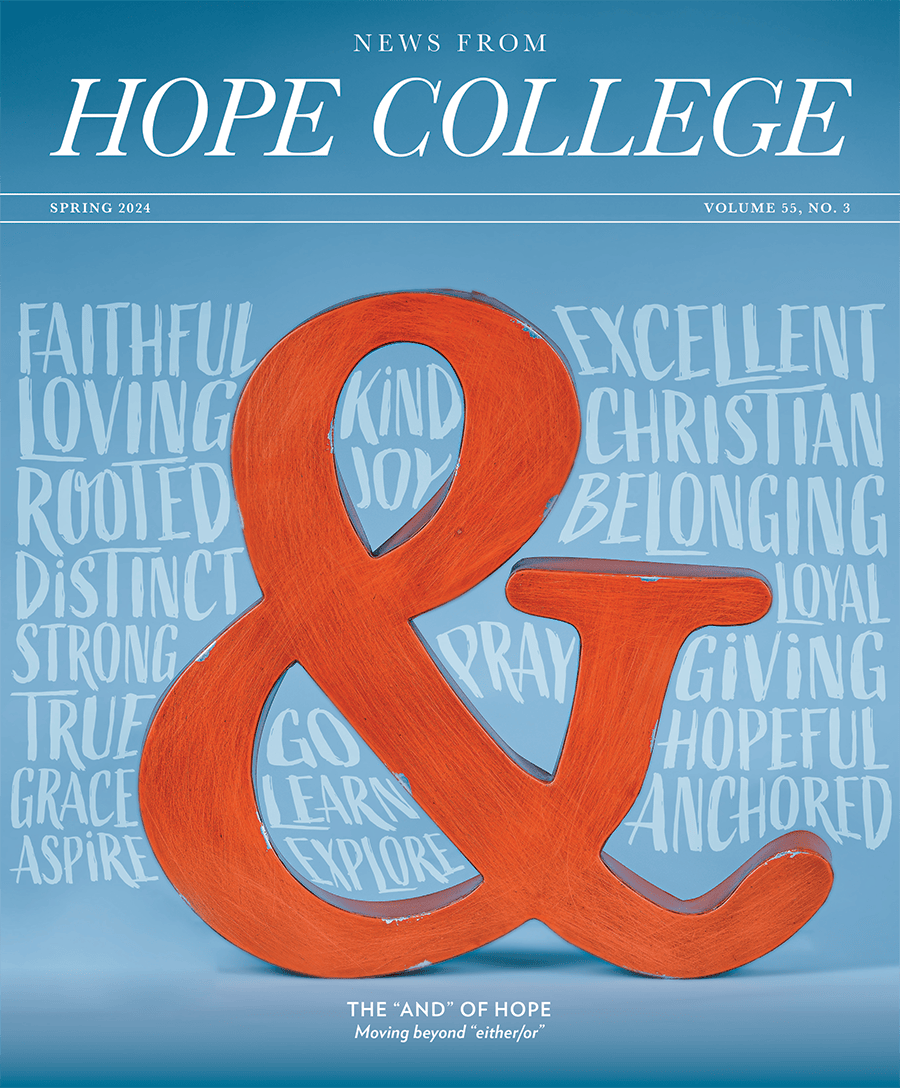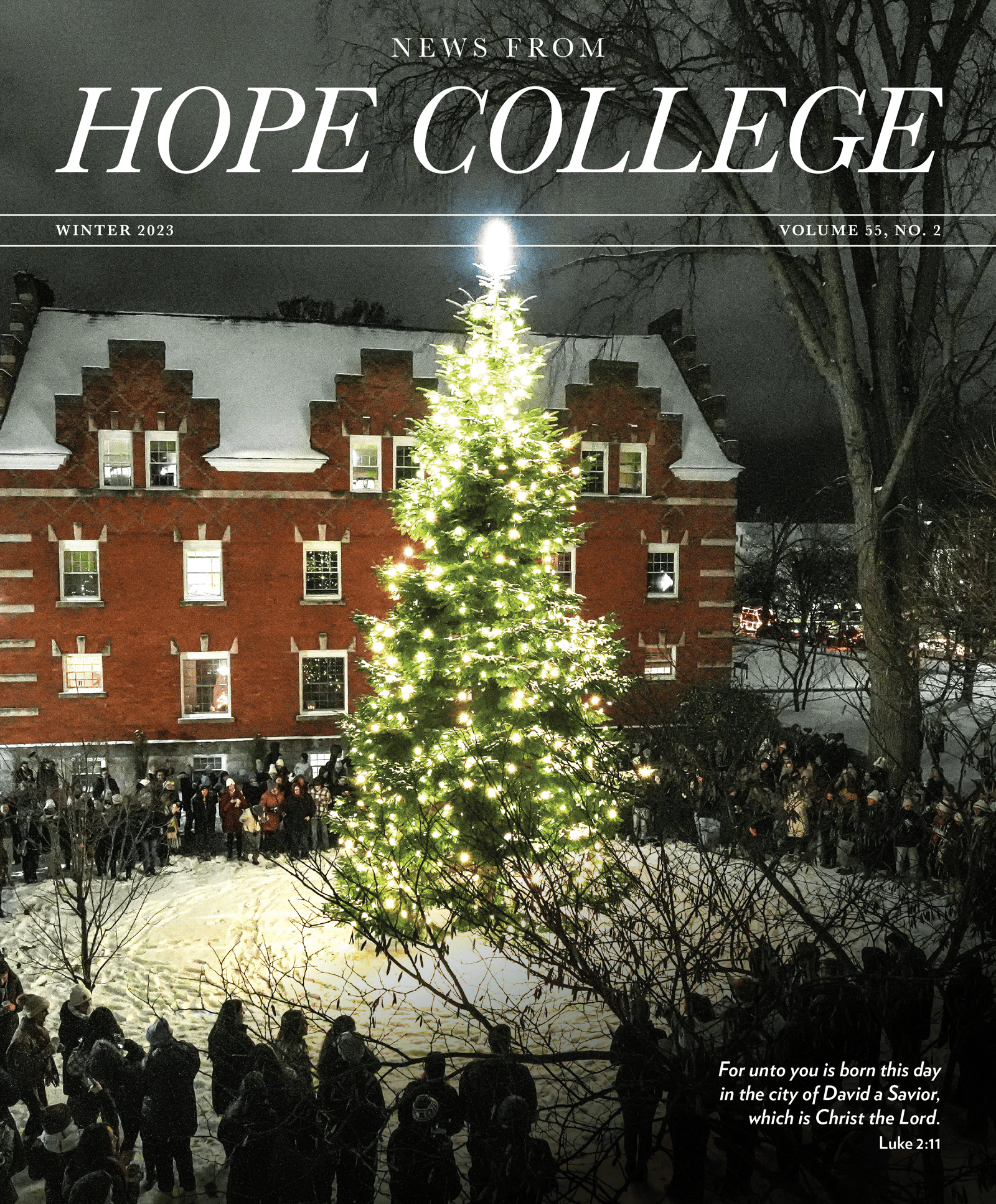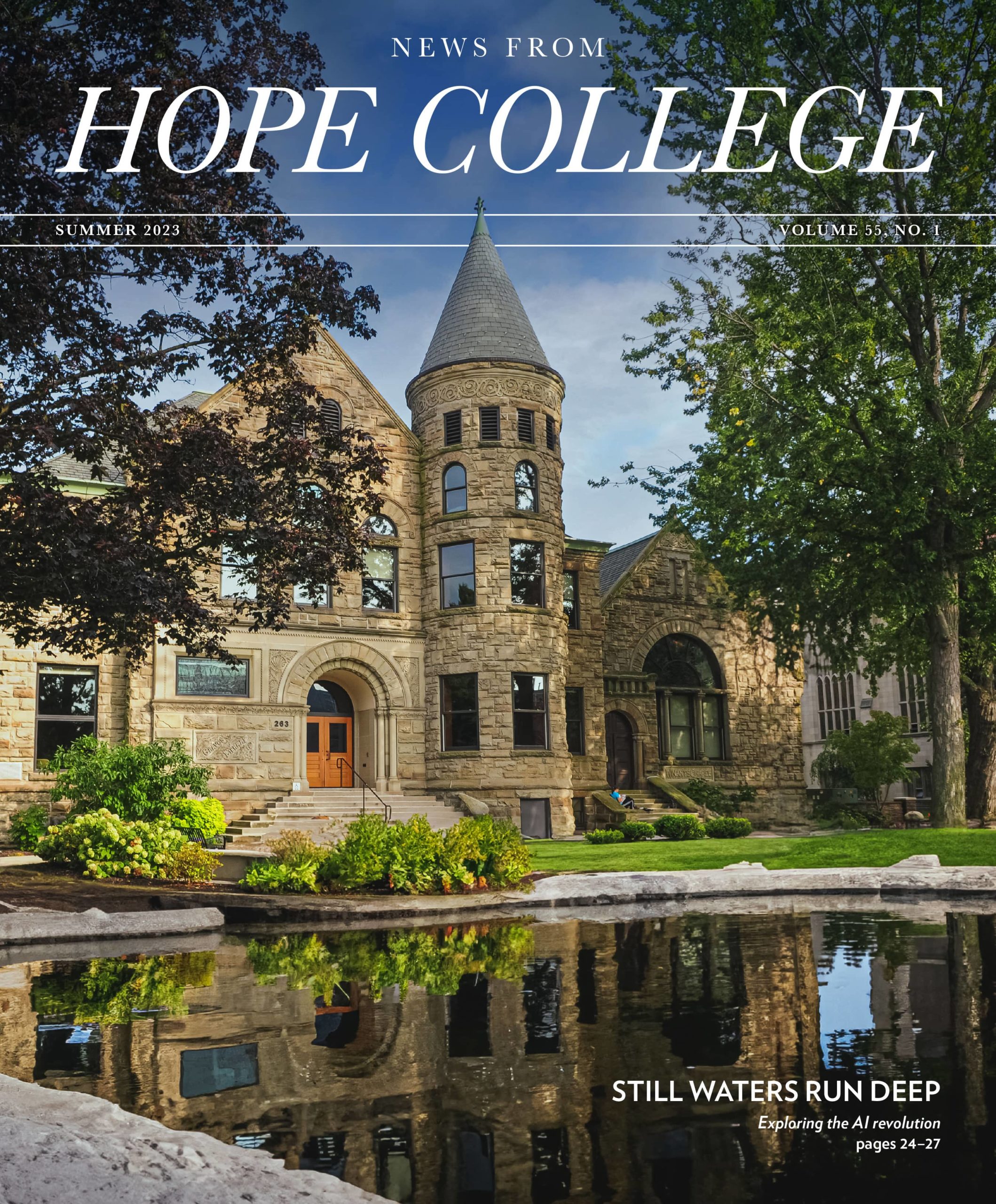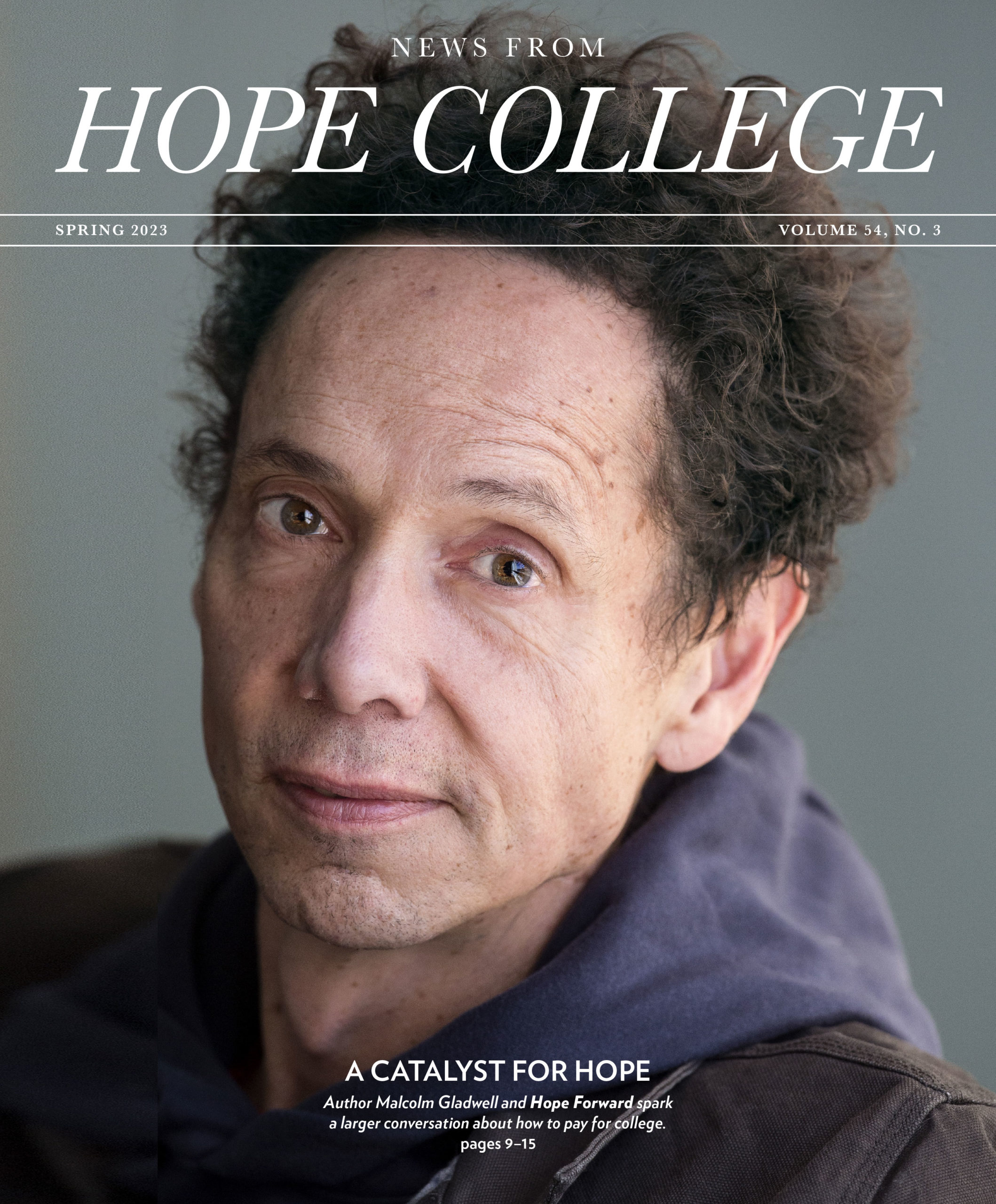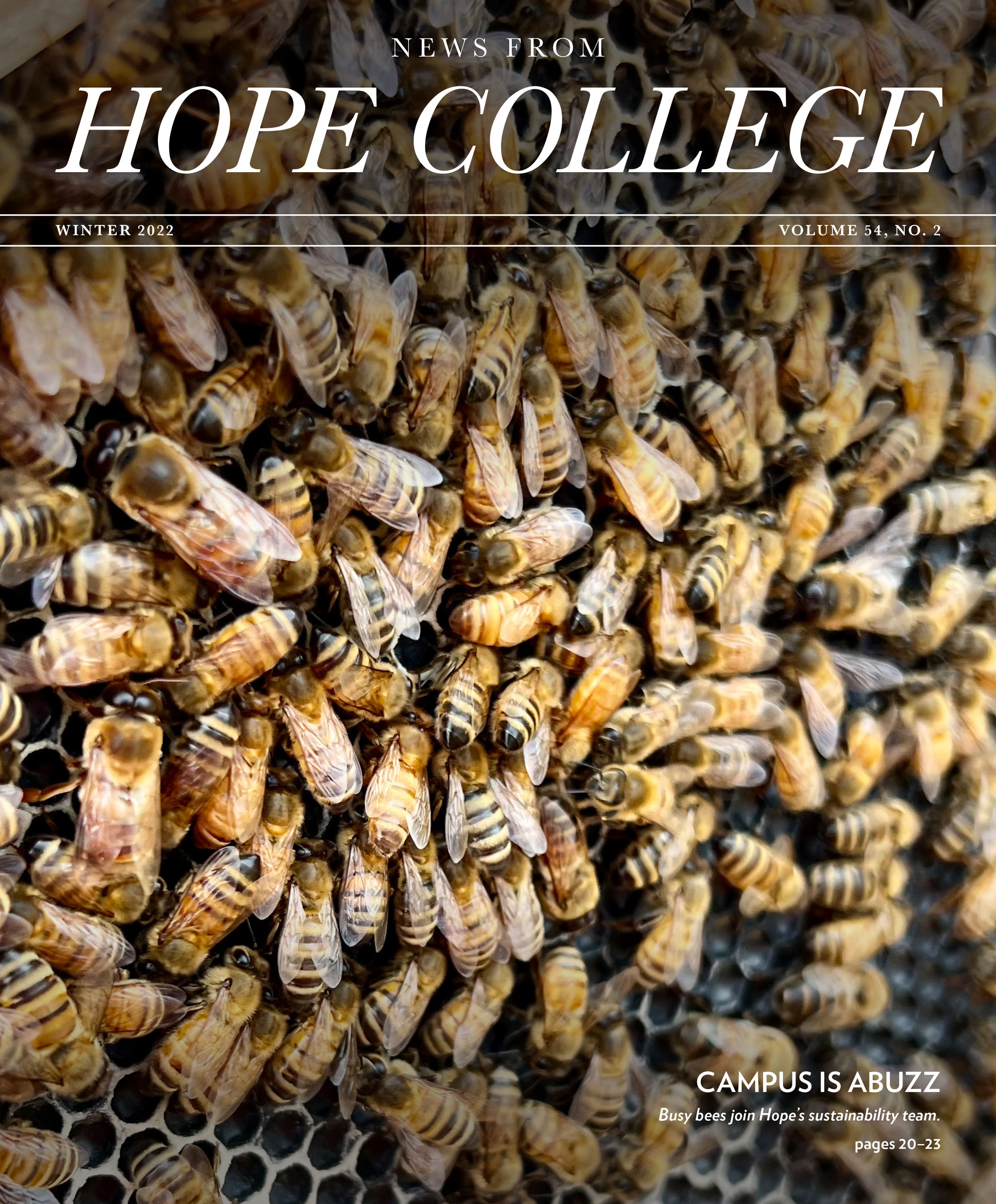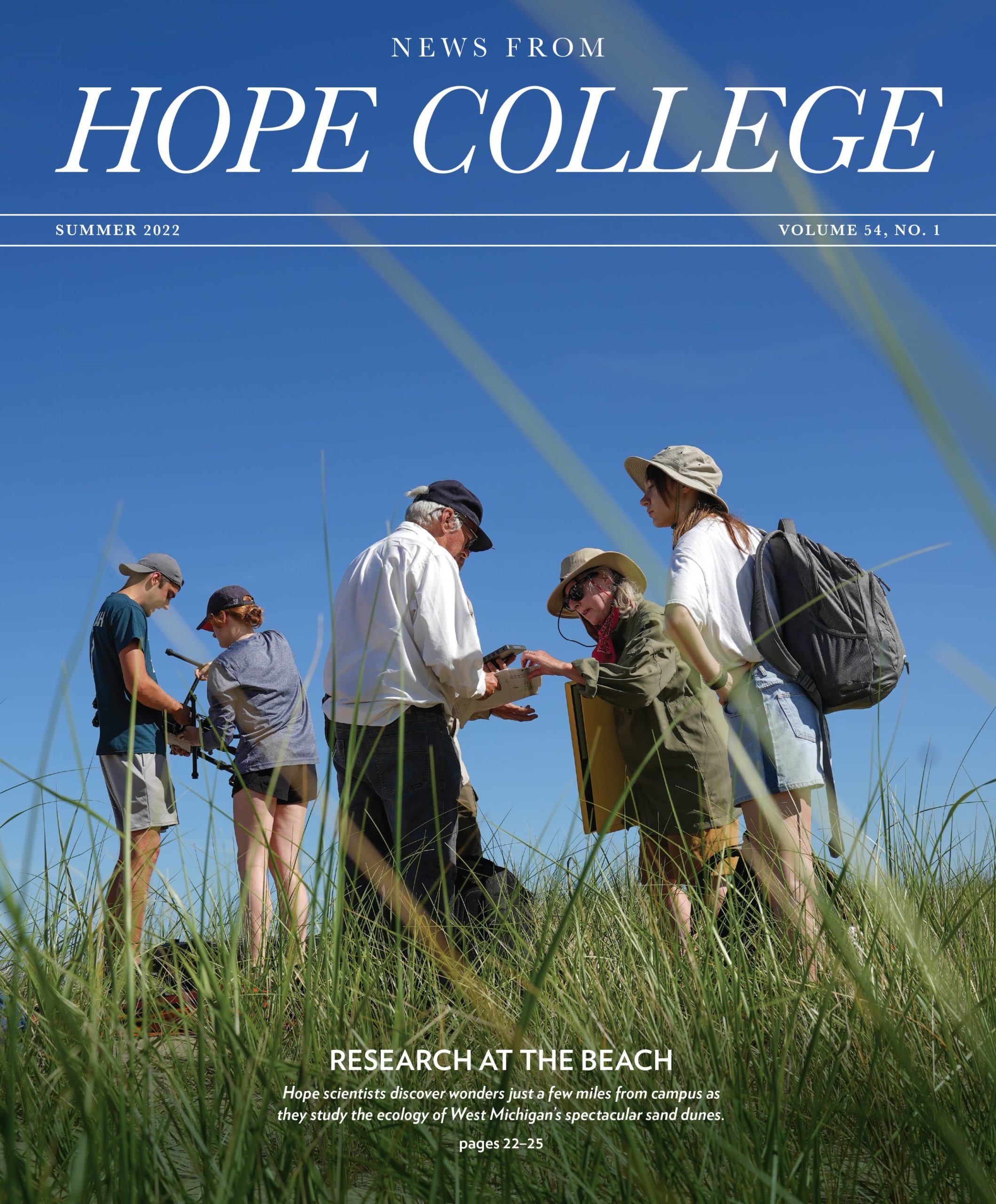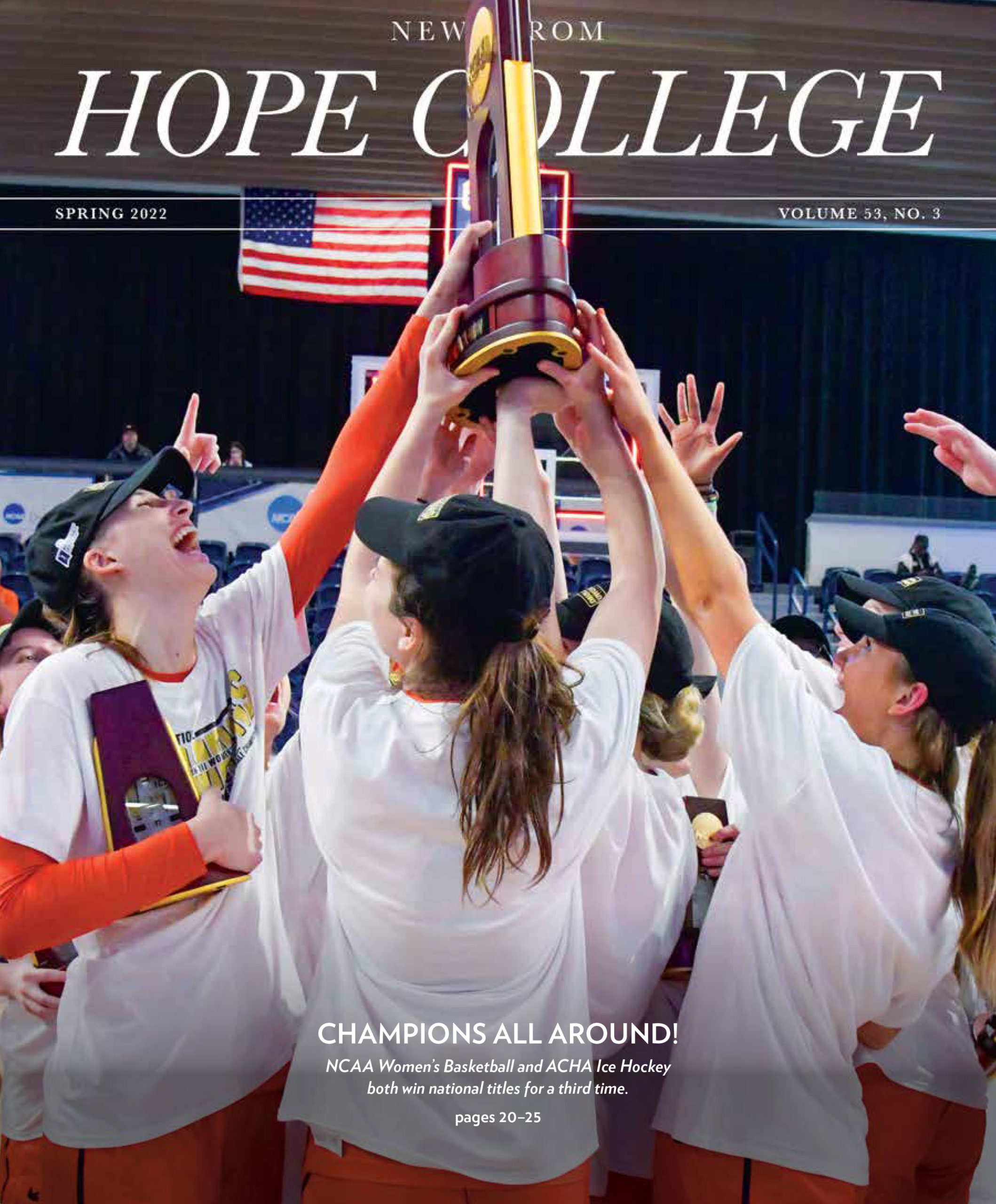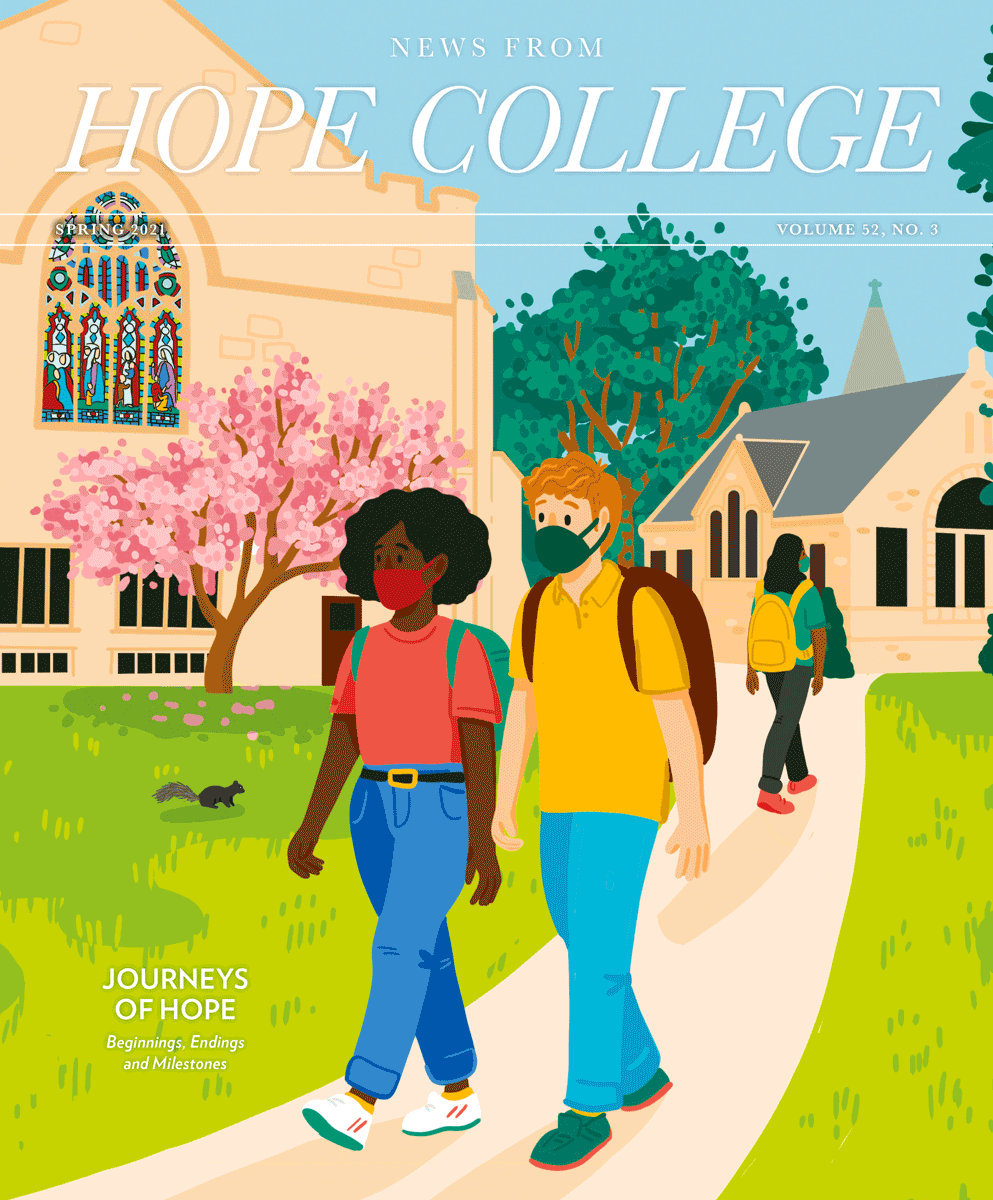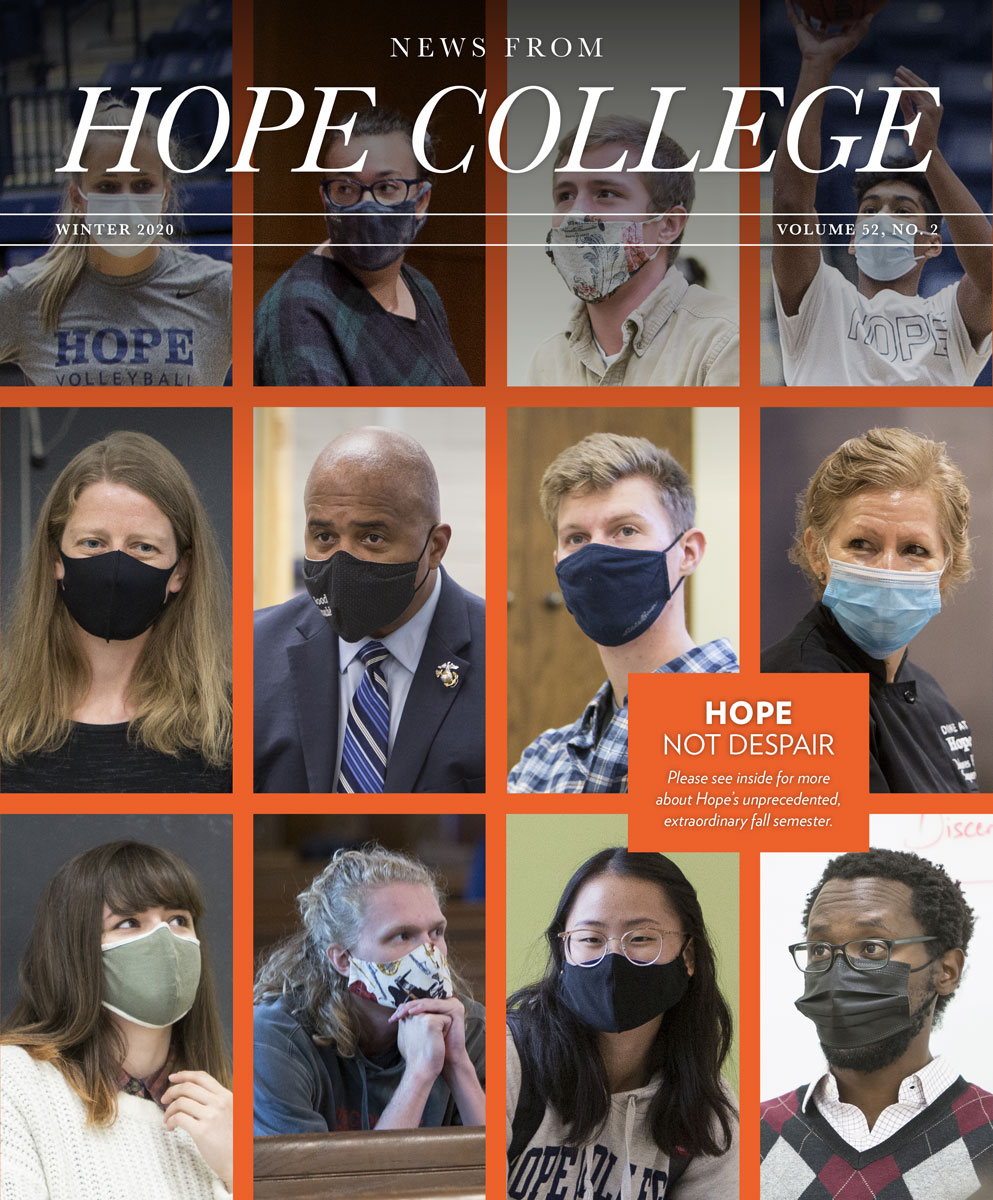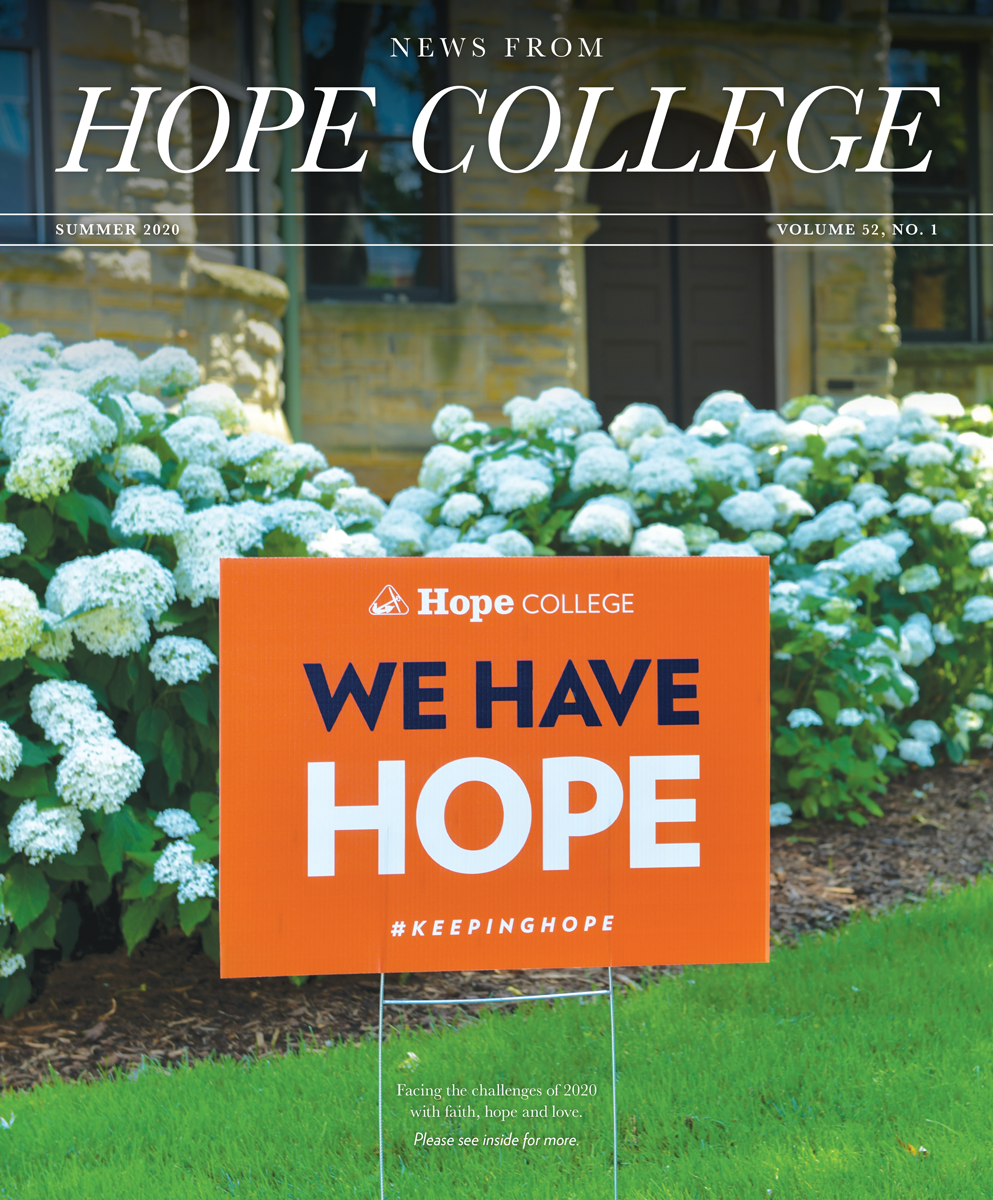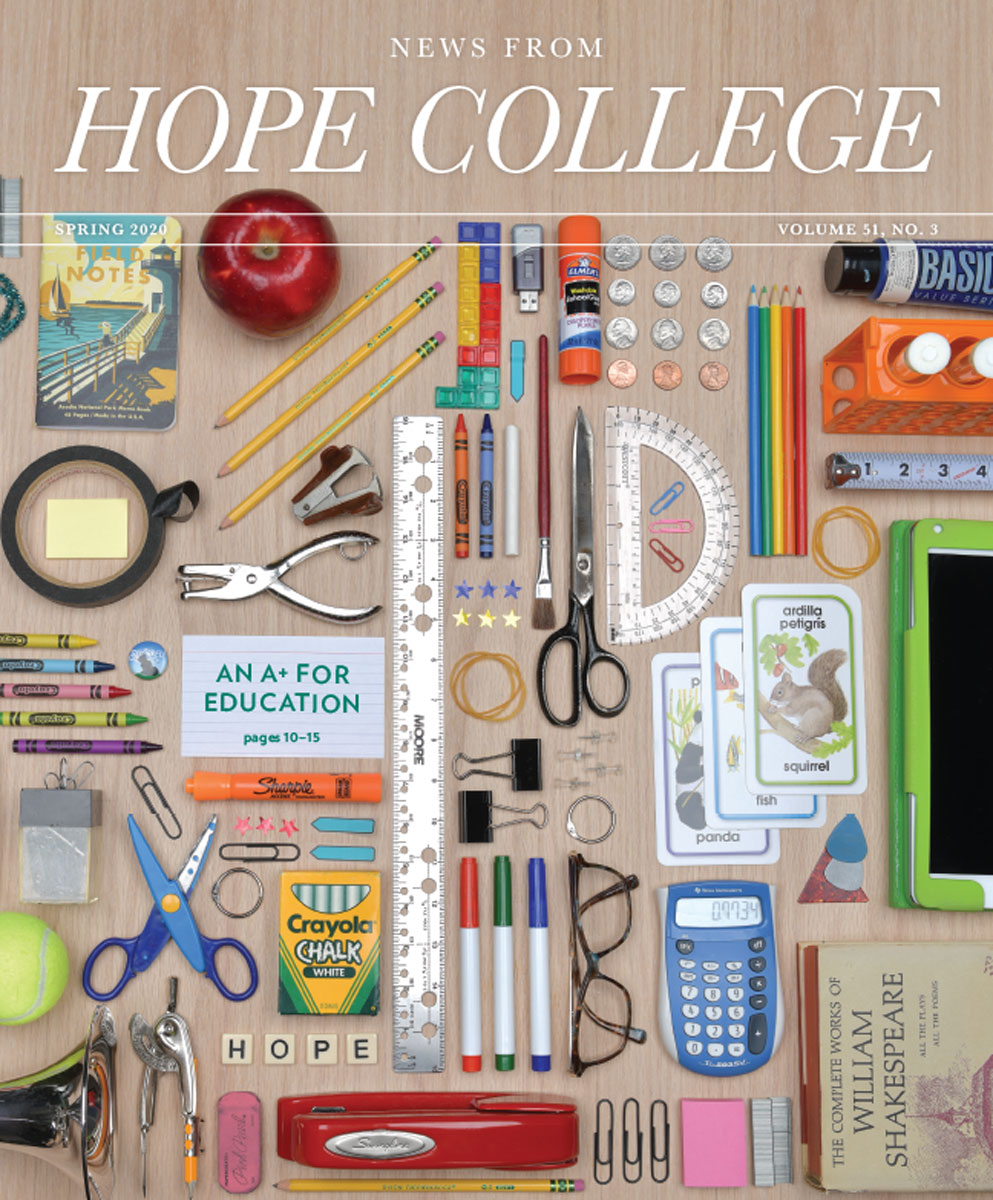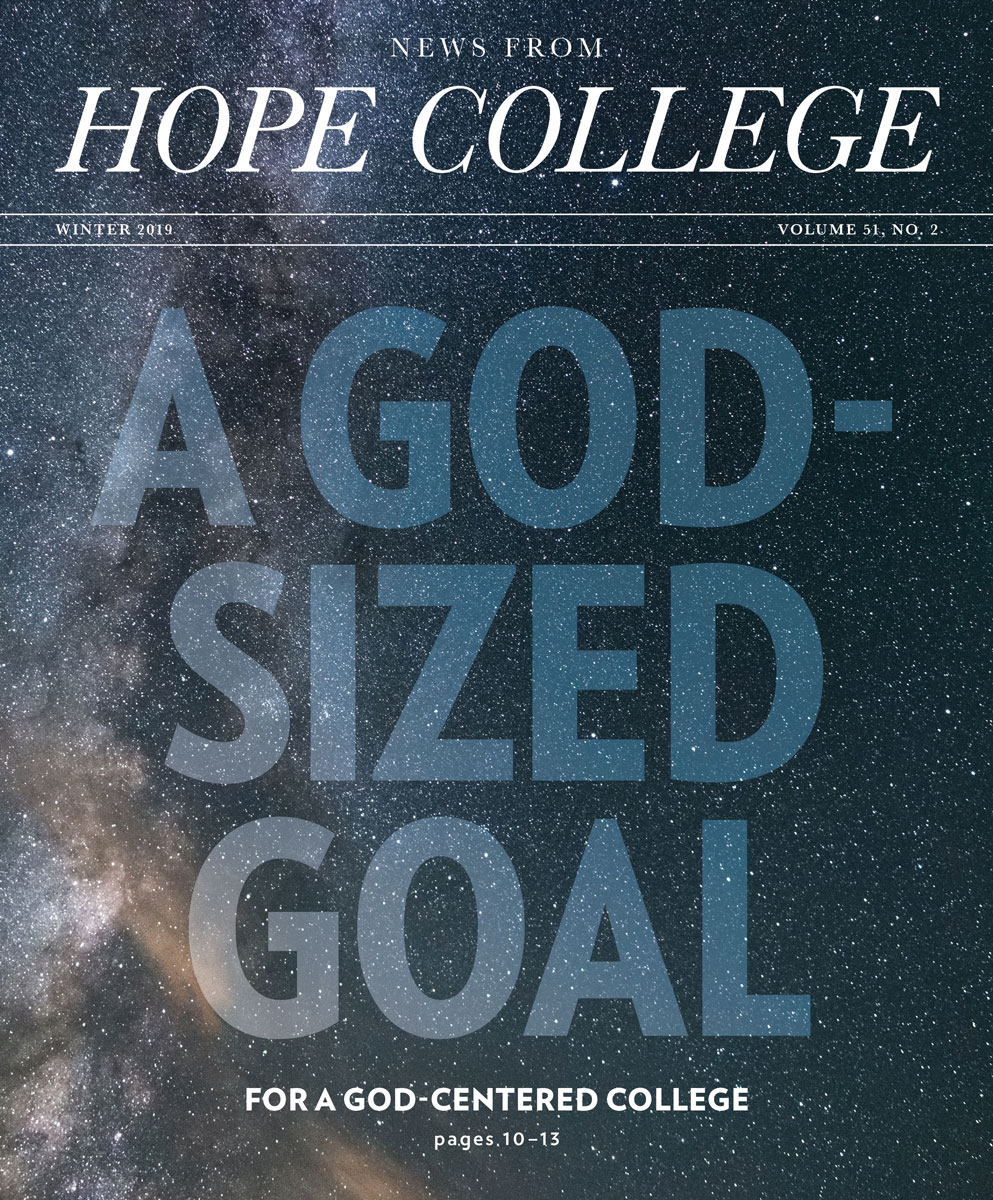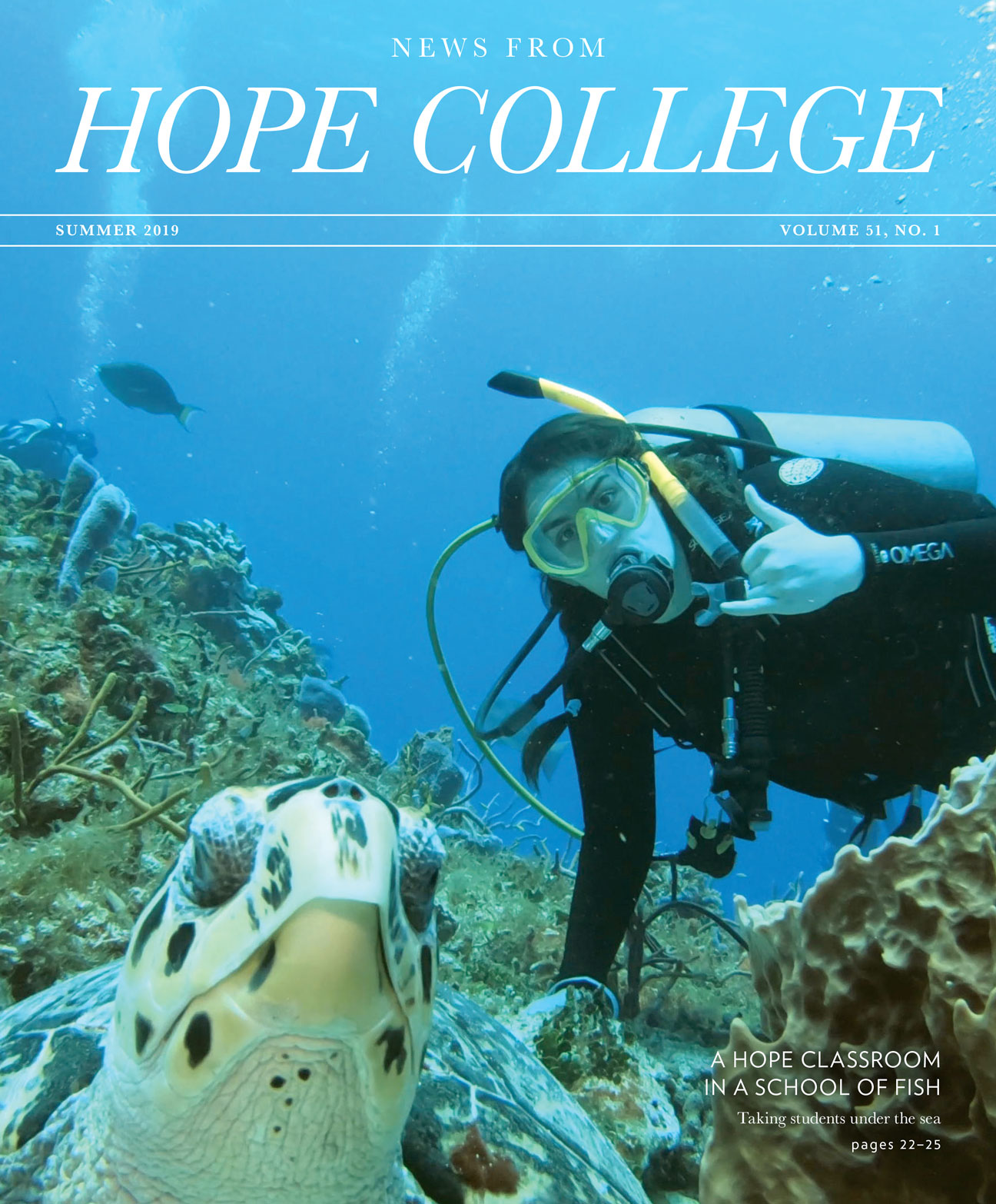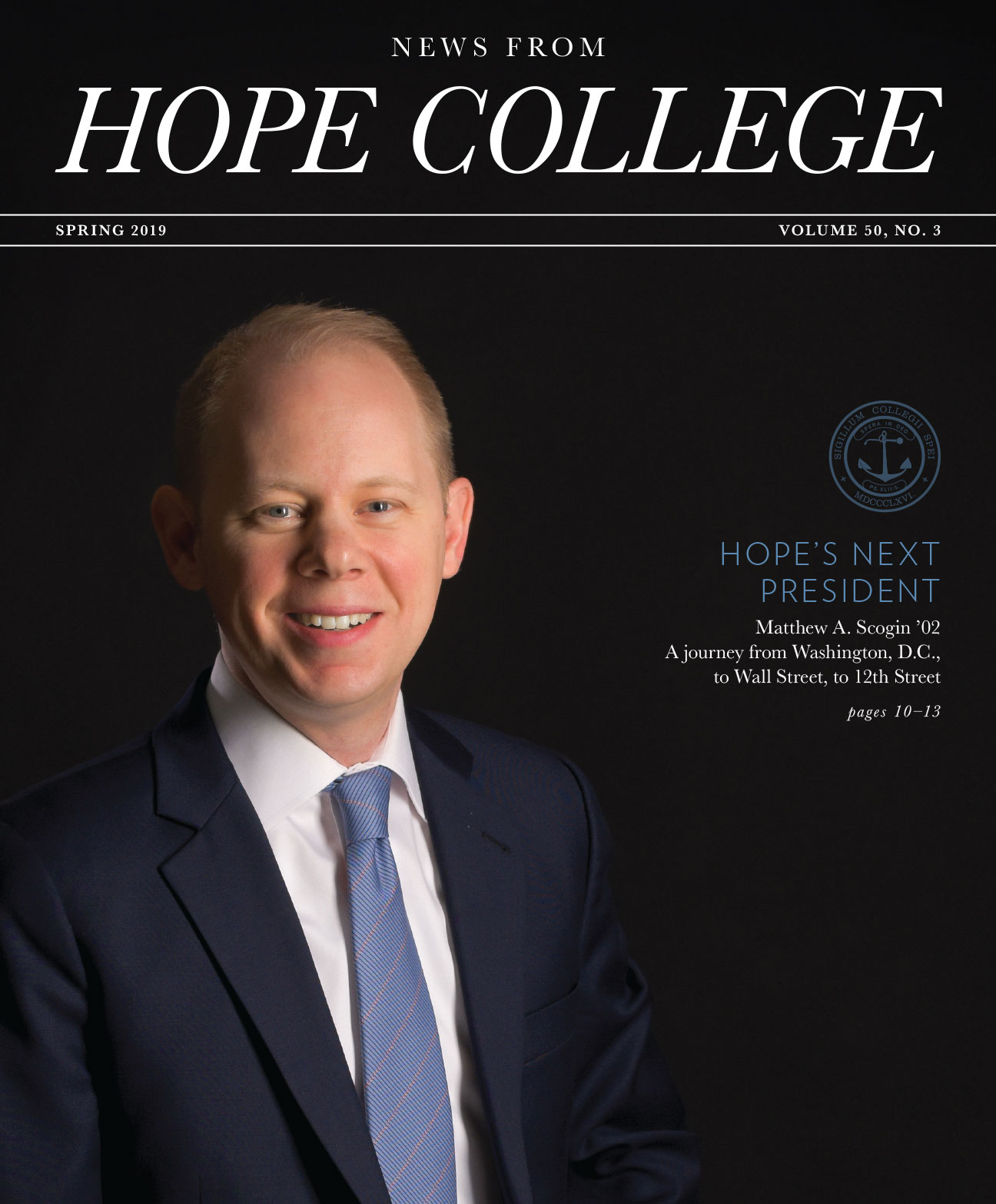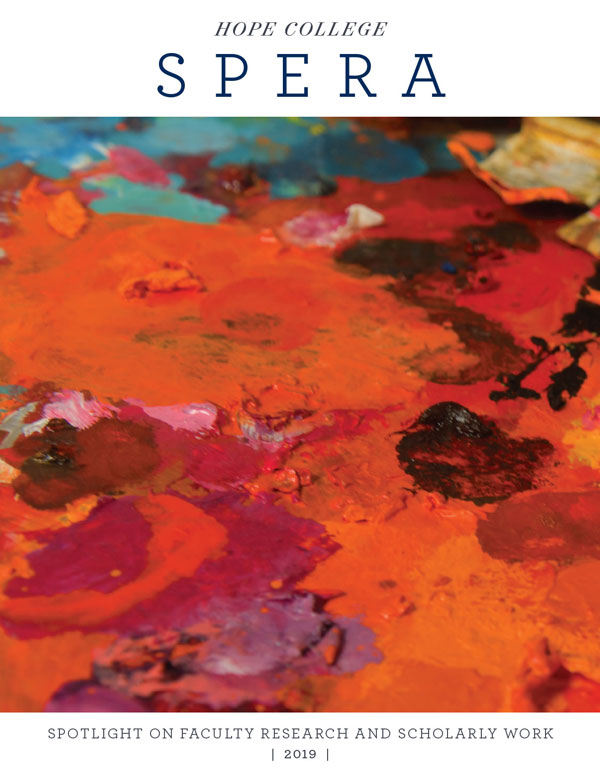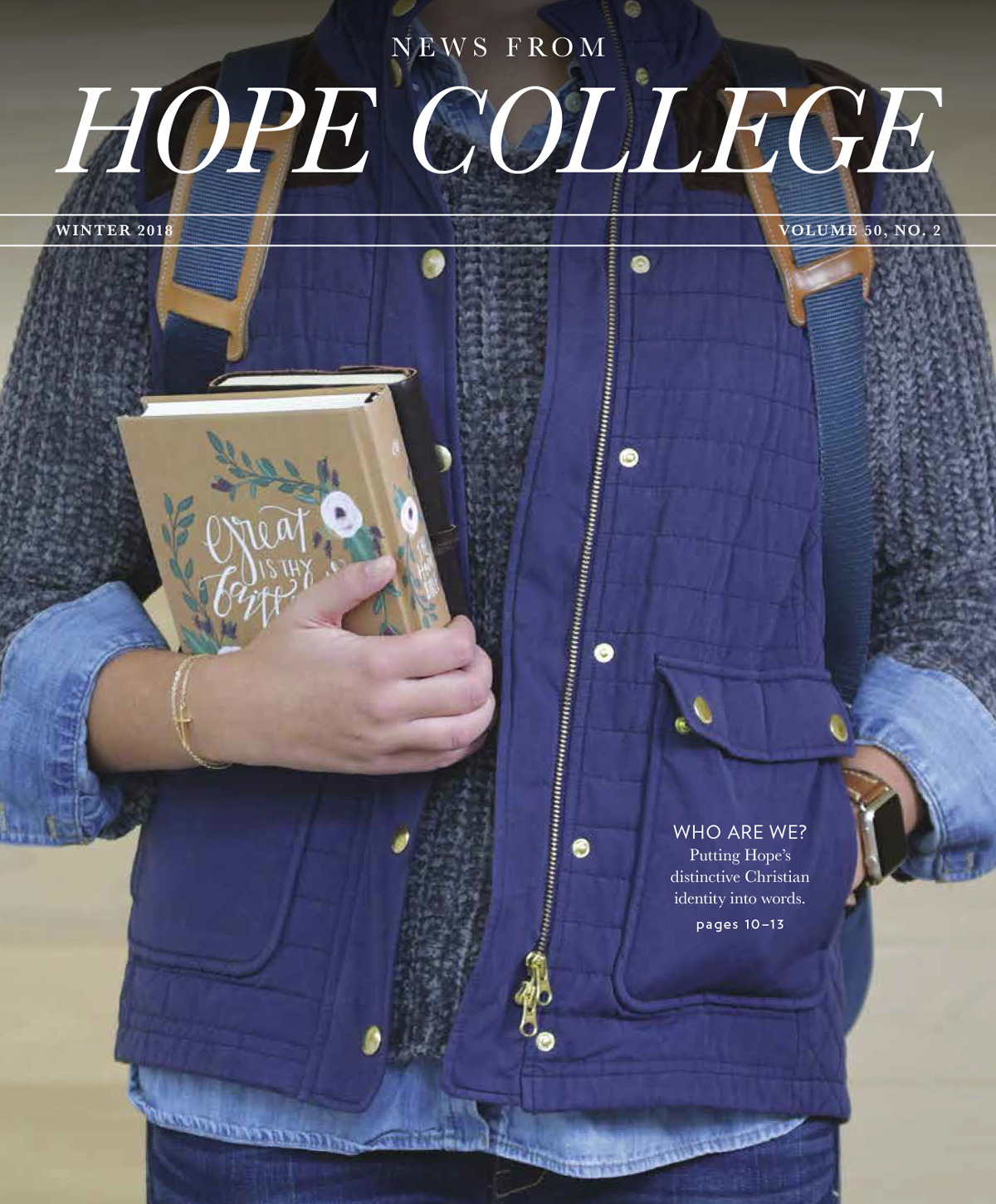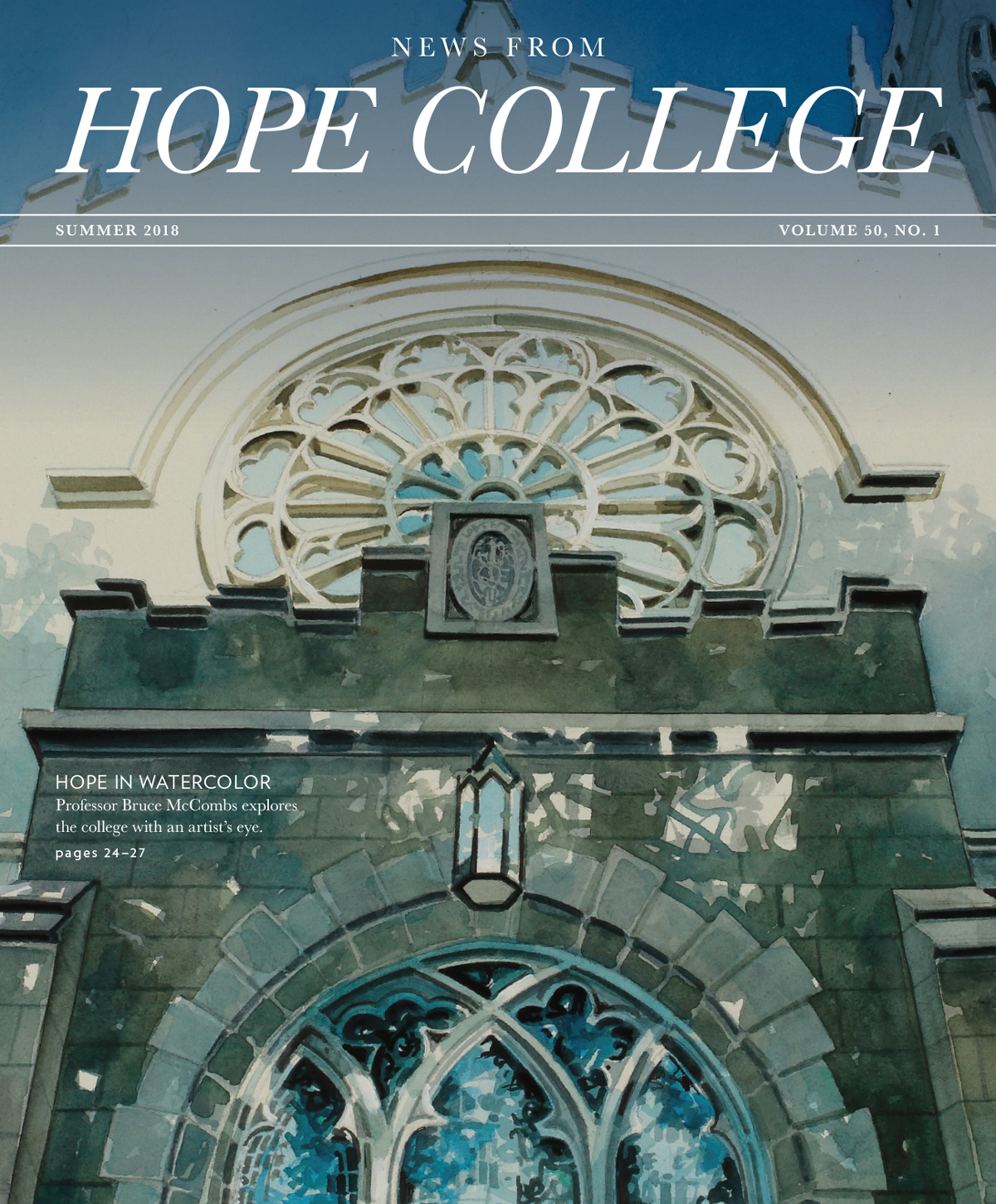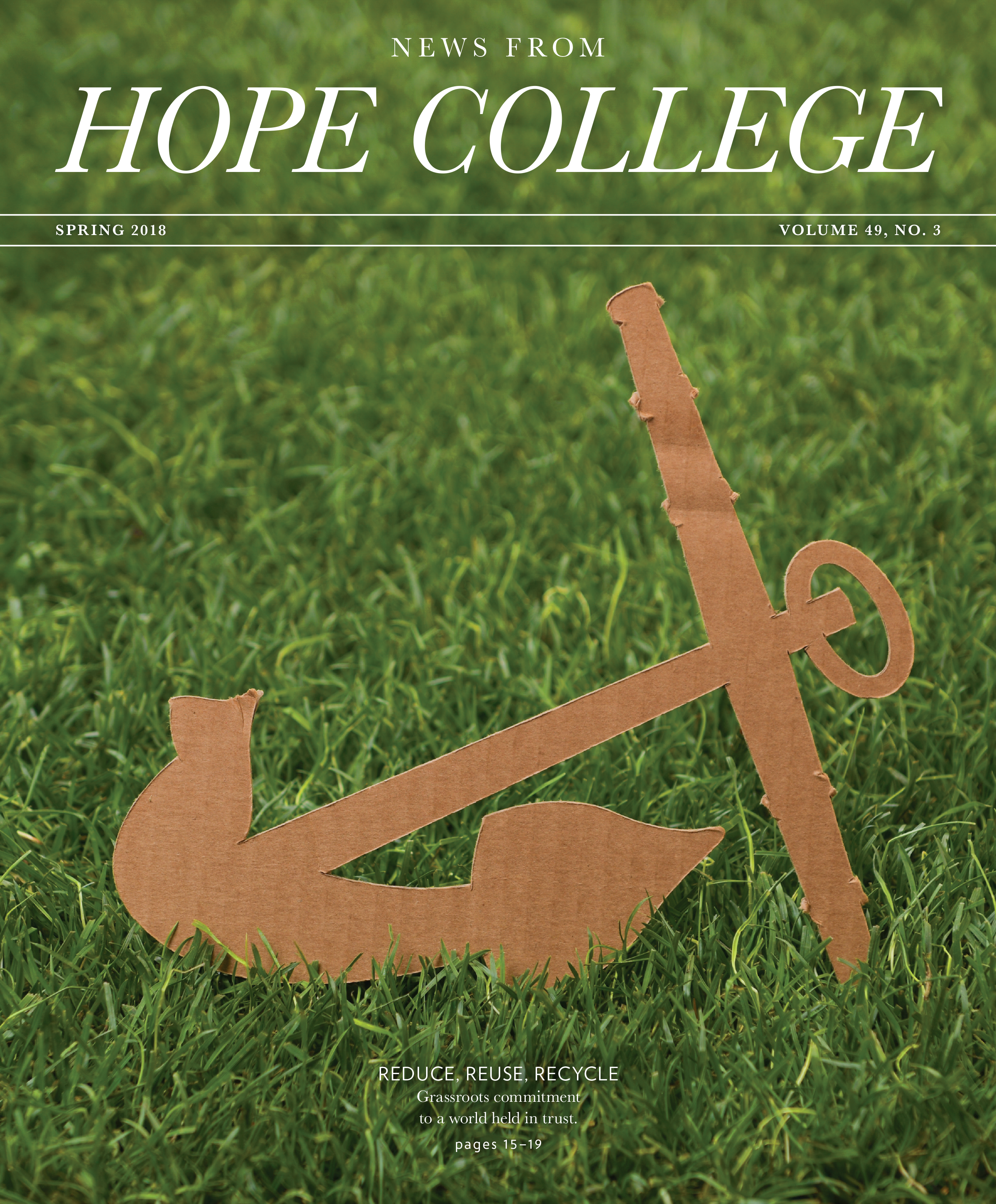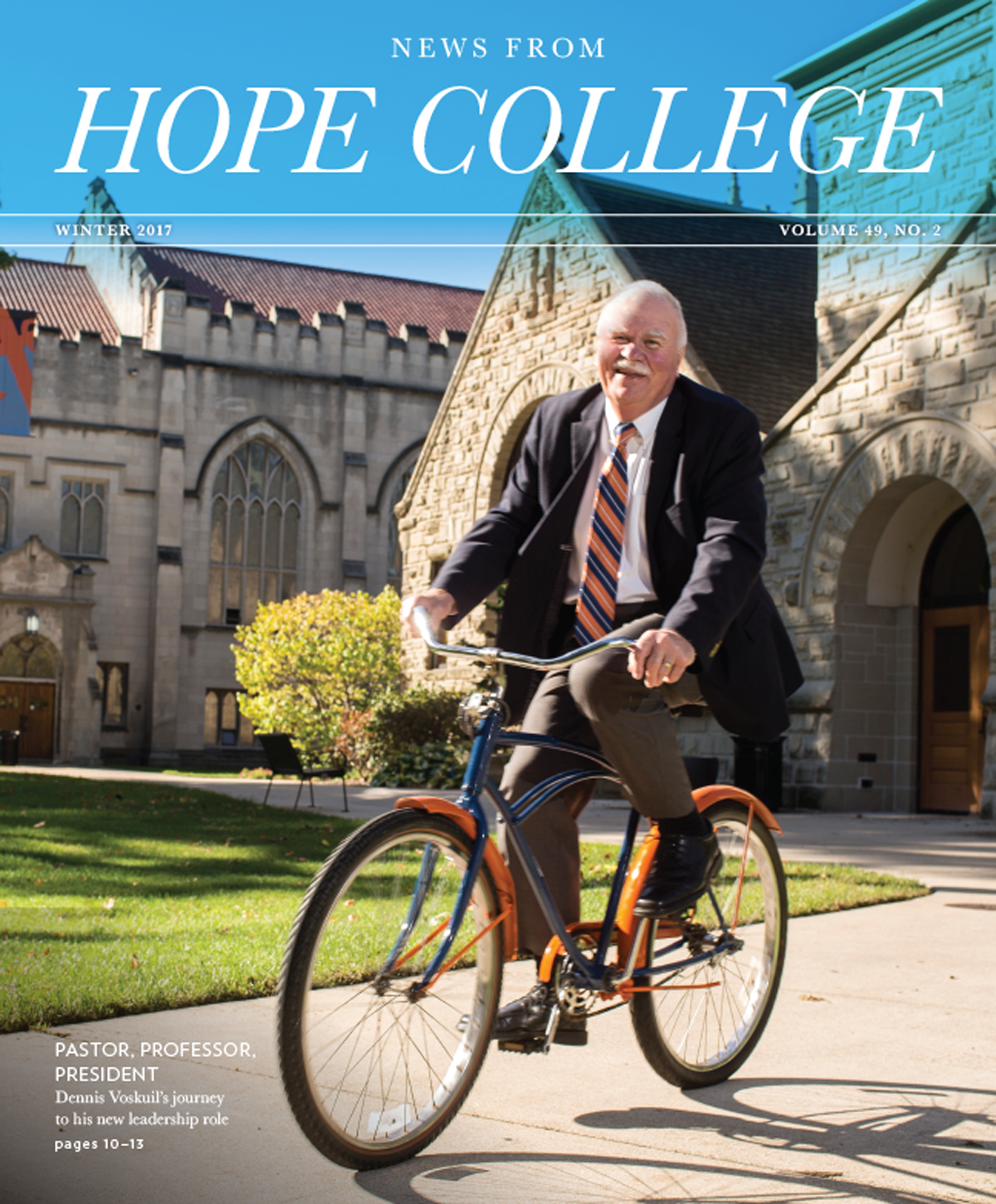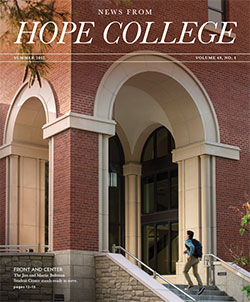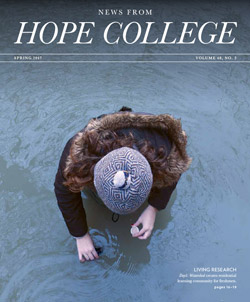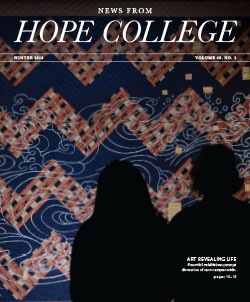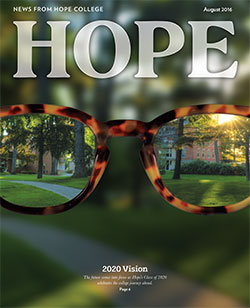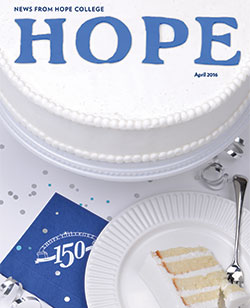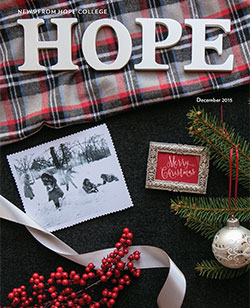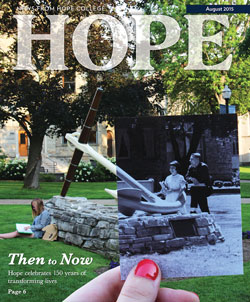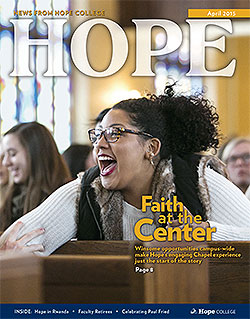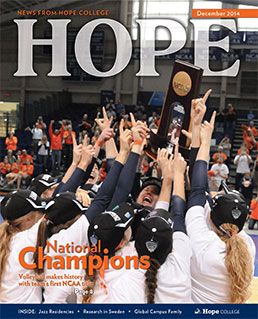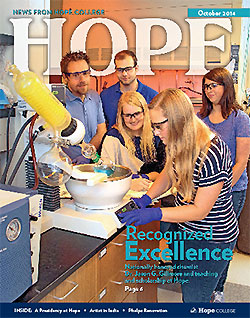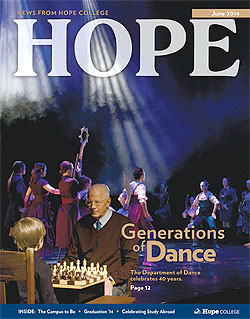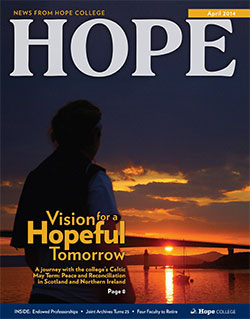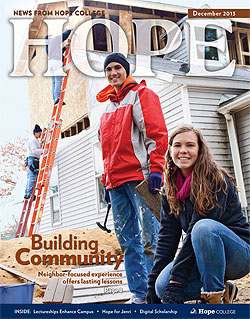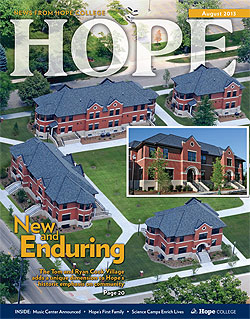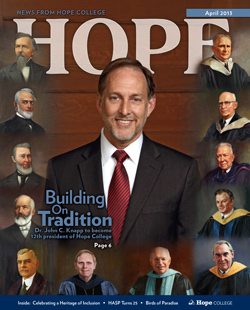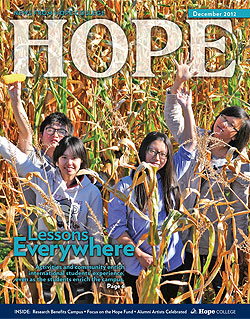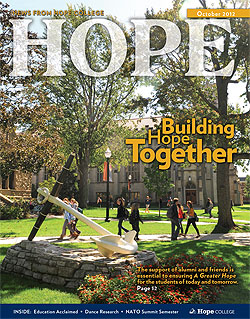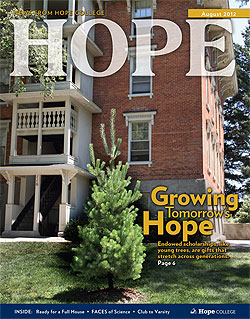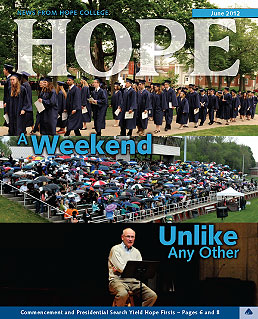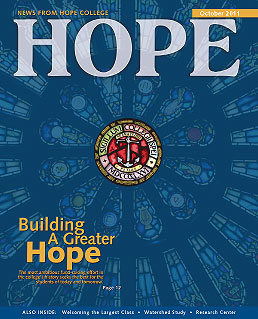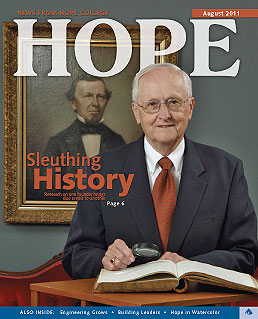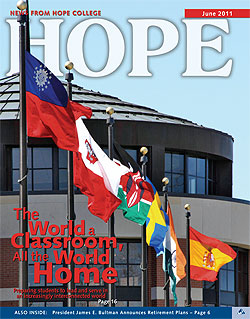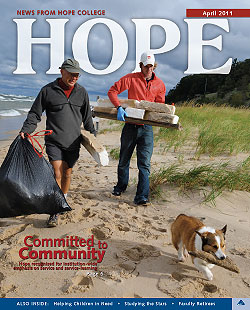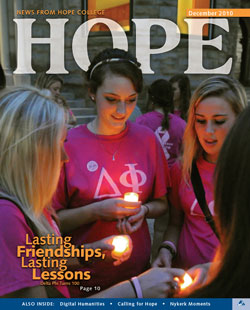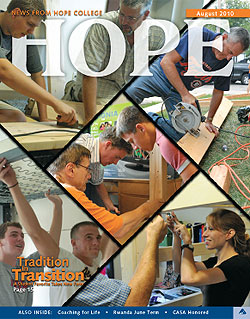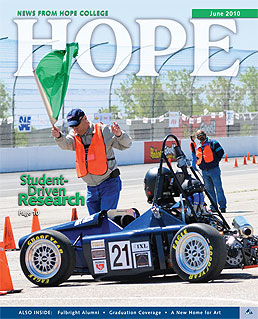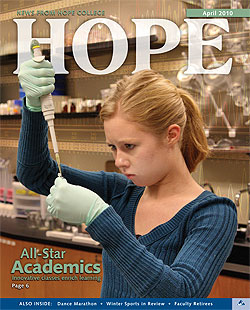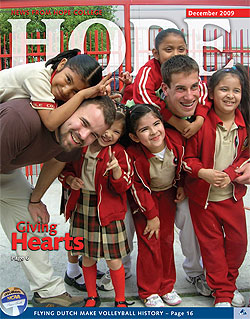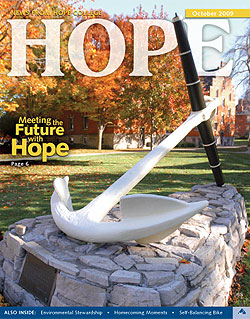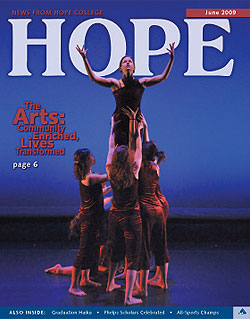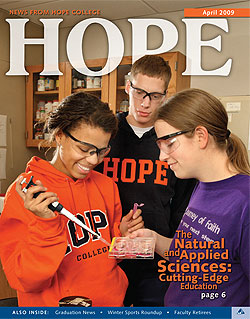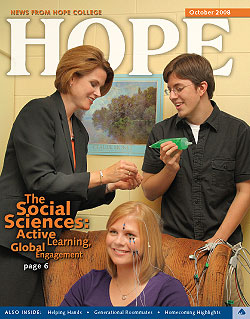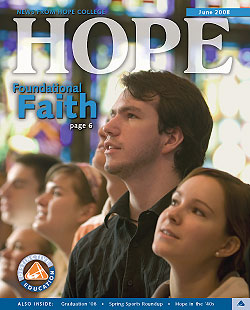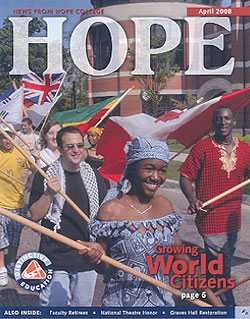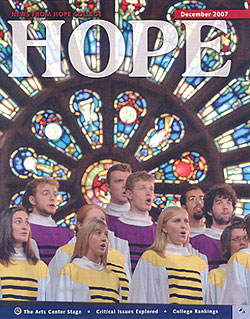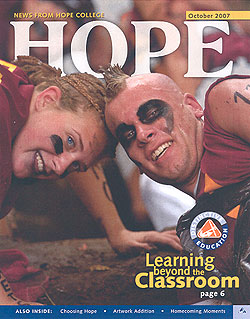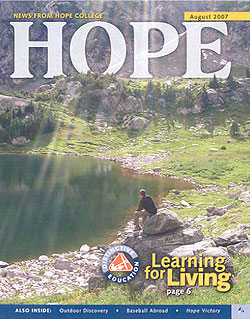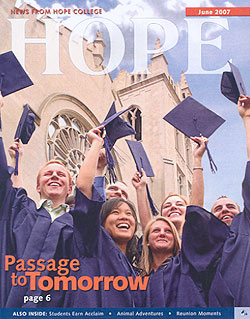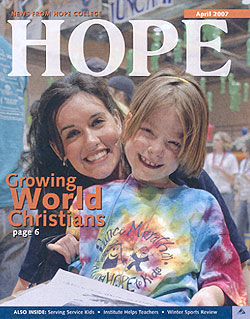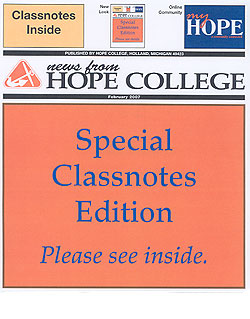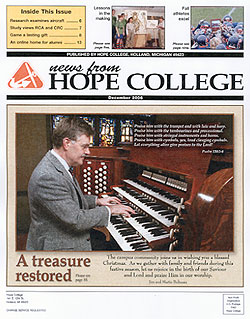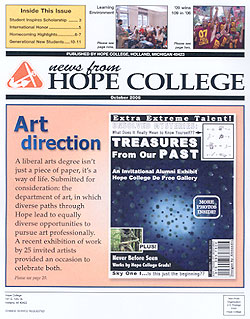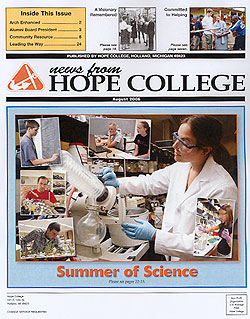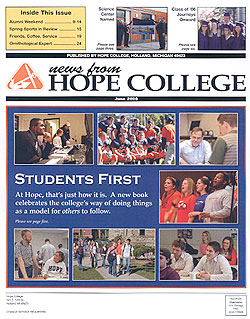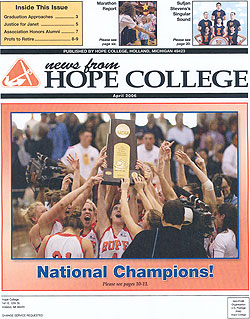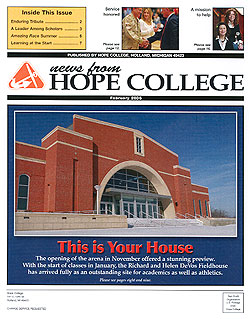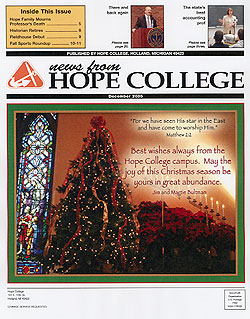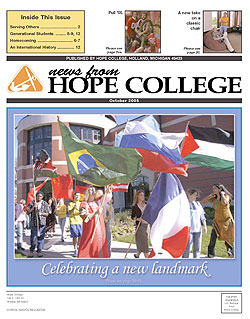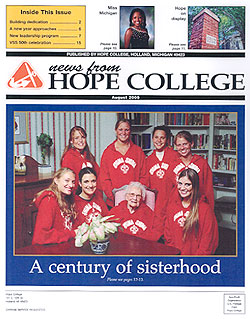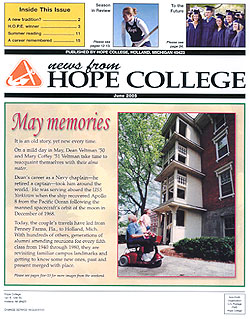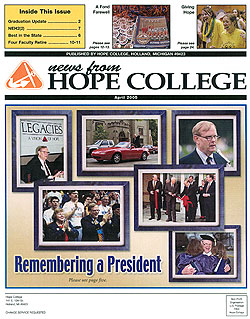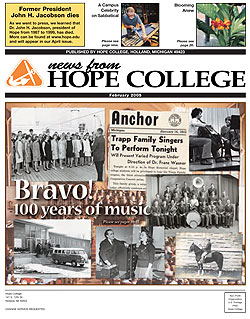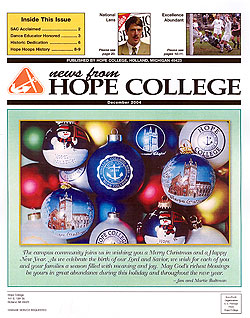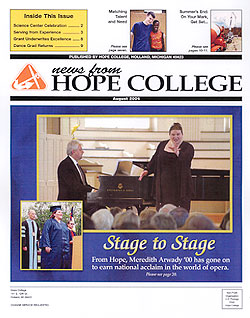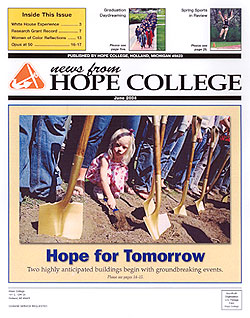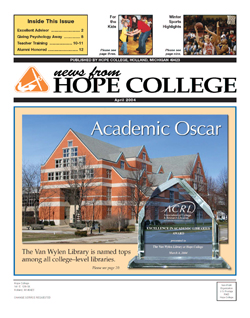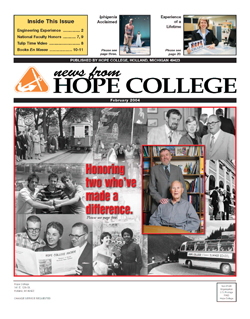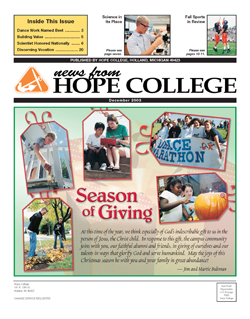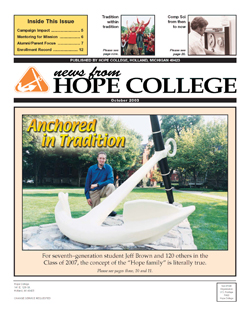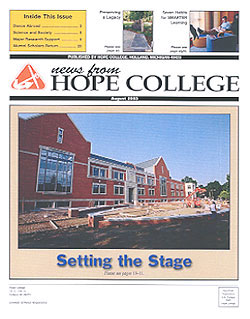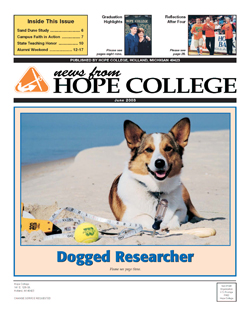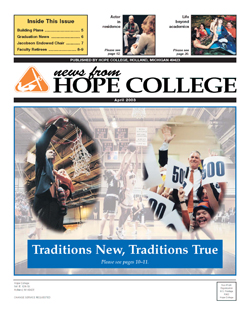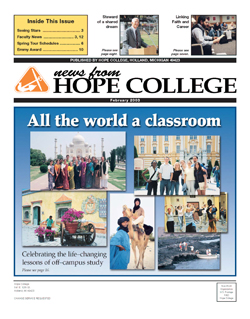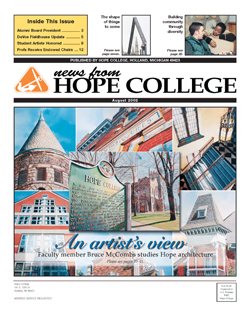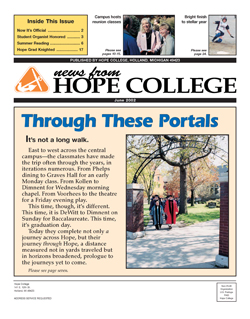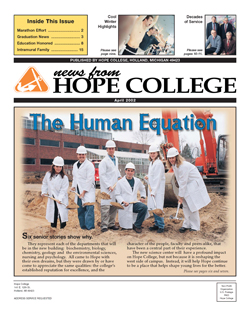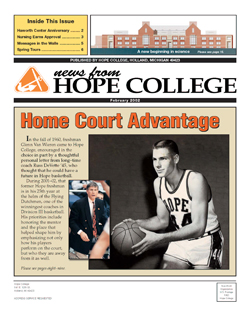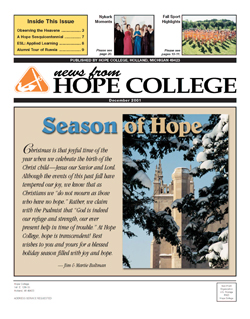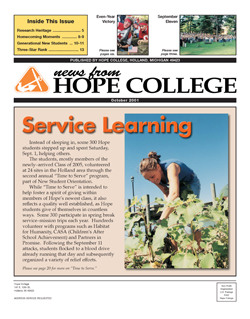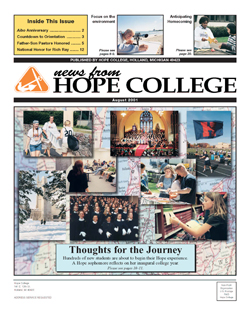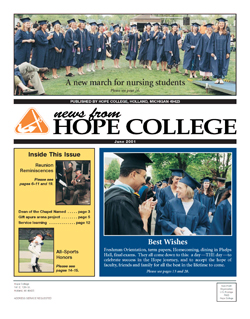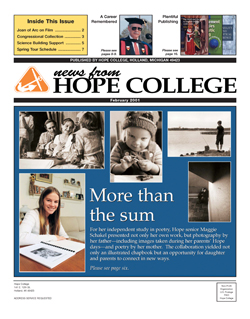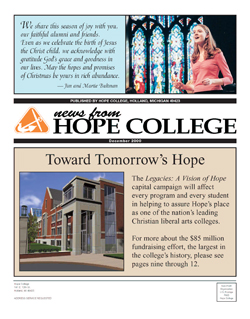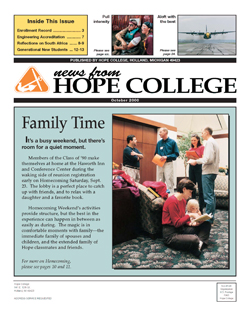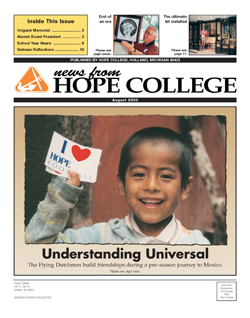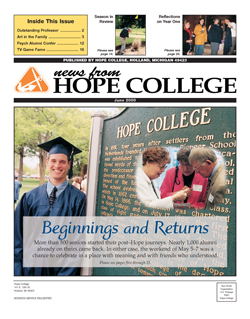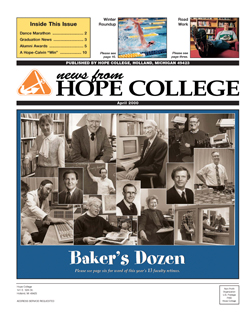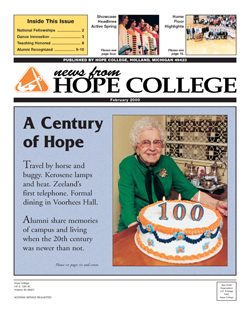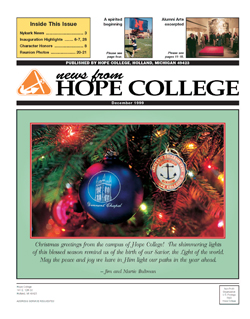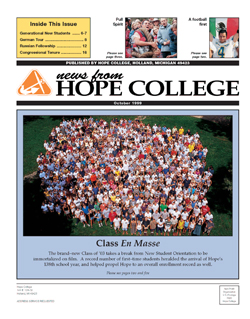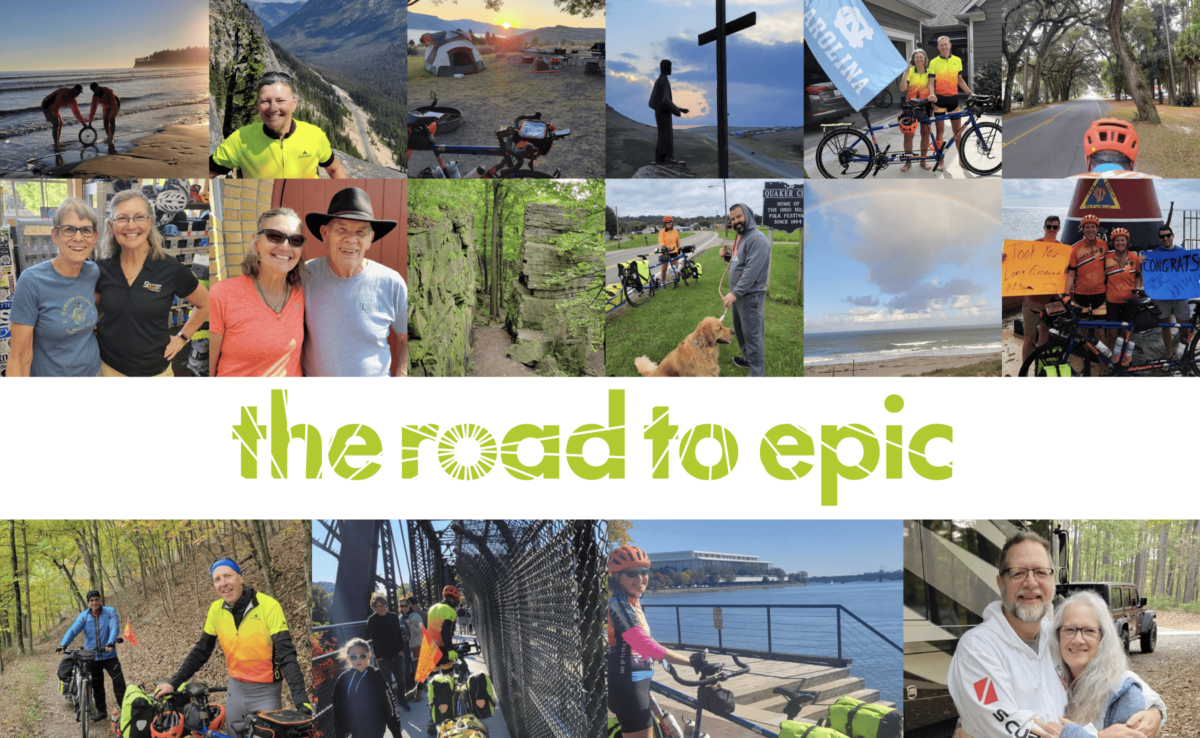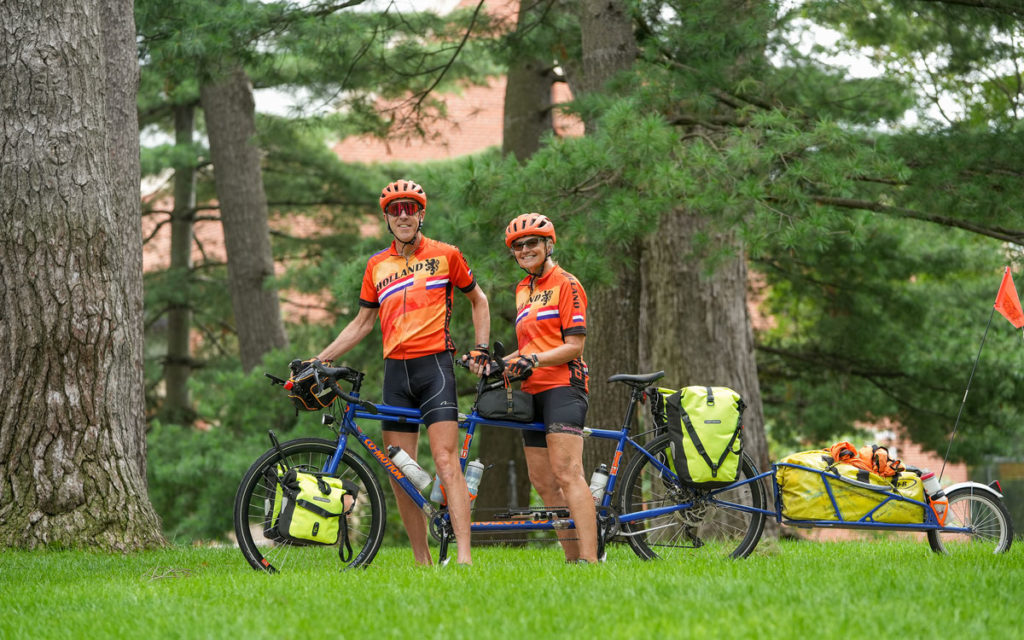The Road to Epic
As Dr. Steve Boerigter, who became chair of the college’s Board of Trustees in July, anticipated retirement from Los Alamos National Laboratory, he wanted to begin with something once-in-a-lifetime epic.
It didn’t take long for him and spouse Kathy Reeder ’83 Boerigter, who’d retired from teaching a couple years earlier, to decide — as experienced tandem cyclists — on a coast-to-coast bike ride across the United States. And so, in early August, their tandem bicycle decked out in Hope orange and blue, they symbolically dipped a wheel into the Pacific Ocean and began a three-month, 5,000-mile journey from Washington State’s Olympic Peninsula to the Southernmost Point Buoy in Key West, Florida. In between, they crossed the North Cascades, rode the vast Plains of Montana and North Dakota, experienced construction and detours, and enjoyed the scenic beauty of the Great Allegheny Passage and the C&O Canal Towpath.
Along the way, they also came to appreciate something that they both realized was more epic than the length of the ride or even the stunning scenery.
“In the end,” Steve said, “doing the trip is just going through each day being patient and kind to each other and trusting that it will work out. We’re only two feet apart almost all of the time, so we need to be in sync.”
“The country is beautiful and vast,” he said, “but it was our personal experiences with others that were the highlight of the trip. We spent a lot of time in very rural America, a place fewer people know these days. Often, the daily narrative tells us that people are so different or we can’t understand their view. Our daily experiences have been just the opposite.”
“We have discovered that everybody has a story, and they’re happy to share their story if you give a little vulnerability, listen intently and ask good, insightful questions,” Steve said. “And when you understand their story, the boxes you put people in evaporate.”
It was true, they found, everywhere.
“Somebody asked me, ‘How do you do this, meeting people?’” Kathy said. “We invade people’s space and make strangers our friends.”
At a time when division and mistrust seem to be the national zeitgeist, it has been heartening.
The husband-and-wife cyclists experienced daily what Steve describes as “God moments” that reinforced the lesson in often extraordinary ways. Like when the North Carolina campground that they’d reached at the end of a hilly, exhausting October day was full, all of its sites either occupied or reserved.
“Right at the moment when we were trying to figure out what we were going to do next, a big RV rolls up and the driver asks if we need help,” Steve recalled. “Kathy explains our situation, and he says, ‘You guys can be our guests. We have a huge campsite — plenty of room.’”
Later gathered around the campfire, the two couples talked the hours away, and strangers became friends as they found things in common — little things, and big. Remarkably, the other husband and wife were also named Steve and Kathy. They’d also been married since June of 1986. They also valued their Christian faith.
“We have discovered that everybody has a story, and they’re happy to share their story if you give a little vulnerability, listen intently and ask good, insightful questions. And when you understand their story, the boxes you put people in evaporate.”
“And so we had a wonderful evening of a shared meal and a shared campsite,” Steve recalled. “It is an example of how during a time of uncertainty we can trust that God’s going to be generous and have a gift for us — perhaps when we don’t deserve it.”
Taken as metaphor, the day-to-day challenges of the ride itself seem like life lessons as well. Together on the loaded tandem, Steve and Kathy are often in vulnerable situations such as climbing steep hills, heavy traffic entering cities, poor road and trail conditions, or charting an uncertain route through detours and construction. These tough situations are where trust becomes most important, not only between themselves but also with the motorists and others.
“The hardest part for me as the captain [the rider in front] has been road construction — detours, traffic,” Steve said. “In a perfect world, I know where I’m going, and we’re just pedaling. With detours and construction, I’m not sure where to go and my Garmin is unhelpful to me. That’s often also when the road goes bad or traffic snarls and it’s real work keeping us upright and safe. It’s hard to be focused on both ‘safe’ and where I’m going at the same time.”
For Kathy, in contrast, “I think the hard part for me is that when you’re on the back as the stoker, you have no control over steering or braking. And I can’t see around Steve, so I really have to trust him fully. So communication is a really big thing on the tandem.”
“Some have asked us how our marriage is going through the adventure,” she said. “Sure, we’ve had our moments, we once went down pretty hard on the street while getting going with one foot clipped in. But we’ve never been closer — both literally and figuratively.”
They also found that many of the comforts and possessions that can seem important… aren’t. Although they sometimes stayed in motels and ate at local restaurants (often the local bar and grill), they for the most part needed to carry everything either strapped to the bike or in its small trailer, including a tent, repair kit, food, water, clothes…
“We had two shirts, two socks, shorts, zip-off pants, base layer, sandals. That’s all of our off-bike clothes,” Steve said. “So you’d see us wearing either the black shirt or the blue shirt. Not surprisingly, the experience absolutely made us appreciate how one can be successful with less.”
That said, with so little clothing, coin-operated washers and dryers became if not essential, at least treasured, which did reveal one unexpected need.
“One thing I hadn’t thought about: We had to save quarters,” Kathy said. “And I hadn’t had to do that since college.”
“In an age when cash is not your friend, per se — ‘the cashless society’ — trying to save quarters is not so easy,” she said.
Even as Steve and Kathy enjoyed meeting new people, the trip also provided a chance to see familiar faces. Their carefully planned route included time with family in Washington, Minnesota, Indiana, North Carolina and — at the half-way point — Holland, Michigan, and the Hope campus.
Kathy’s first journey to Hope had been by car not bike, when she visited with friends as a high school senior from Jenison, Michigan. She acknowledges that she had already decided to go elsewhere and was just looking for a day off, but the college’s personal touch impressed her and she changed her plans and enrolled. She majored in biology and minored in chemistry and joined the Sigma Sigma sorority, and went on to teach chemistry for nearly 30 years, retiring in 2019.
For Steve, who grew up in Holland, the initial connection to the college was through family. His last name will be familiar to those who know of the college’s Boerigter Center for Calling and Career — it was established in 2016 in honor of his parents, George ’61 and Sibilla Boerigter, by employees of SoundOff Signal, the company that George founded. In addition to Steve’s father, three of his uncles were Hope grads.
Although Steve’s two brothers also attended Hope, he was interested in engineering, a major that the college didn’t offer at a time. He earned a Bachelor of Science degree in geological engineering at the University of Arizona, and then a Doctor of Science degree in nuclear engineering at Massachusetts Institute of Technology. He held a variety of positions during his subsequent 29-year career at Los Alamos National Laboratory, in both technical and non-technical leadership roles.
Kathy and Steve didn’t meet at college, but they did meet while in college, when both were summer counselors at Camp Geneva north of Holland. They eventually became Hope parents, with two of their three daughters, Kim and Michelle, graduating from the college in 2014 and 2016, respectively.
They appreciated their daughters’ experiences at Hope, and Steve liked what he saw as the vision for the Boerigter Center developed, so he didn’t hesitate in joining the board when invited by then-president Dr. John C. Knapp in 2017. It was also a natural fit given his own commitment to volunteer service and to education in particular, which included serving on the Los Alamos Public School Board and chairing the Advisory Board for the University of New Mexico Los Alamos Campus. Outside of education, he’s also a past president of the board of United Way of Northern New Mexico and a founding member of the Los Alamos Community Foundation.
Steve notes that he’s enjoyed his past five years on the college’s Board of Trustees, observing that “This group is the most capable body of people I’ve ever spent time with in my life. They love Hope College and I’m unbelievably humbled to be even just a part of it.”
He especially appreciates the bold vision of Hope Forward not only to improve access to a college education, but to shape culture for the better at the same time.
“I think for me, the vision of Hope Forward that is most powerful is this notion of building an enduring culture of generosity. Imagine deep, life-long gratitude having experienced Hope College from the gifts of others — who themselves were the recipients of others’ generosity. Frankly,” Steve said, “it sure sounds similar to how God’s grace works.”
“If riding over 5,000 miles on a tandem sounds hard, imagine changing the funding model for higher education and building an enduring culture of generosity and grace along the way,” he said. “That’s pretty epic.”
